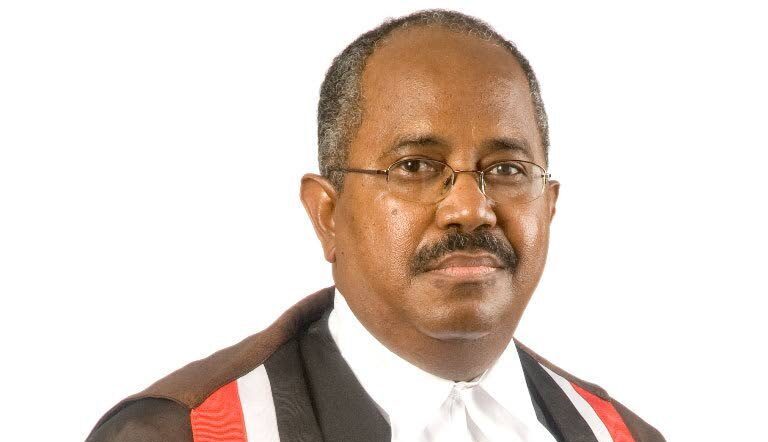[UPDATED] SoE tribunal appointed, rules set for management of detainees

THREE senior attorneys have been appointed by the acting Chief Justice to sit on the state of emergency (SoE) tribunal.
Deborah Peake, SC, was appointed chairman of the tribunal while its members are Ian Benjamin, SC, and Lee Merry, SC.
Their appointments were announced in a gazetted notice signed by acting Chief Justice Nolan Bereaux on January 2.
The gazetted notice quoted Section 11 of the Constitution – which deals with detentions under SoE regulations – and Regulation 5(2) of the Second Schedule of the Emergency Powers Regulations 2024.
However, legal sources pointed out that Legal Notice 240 which sets out the emergency powers regulations does not contain a second schedule.
Questions were sent to the Judiciary to ascertain if this was an error as concerns have been raised on the validity of the appointment of the tribunal members.
The gazetted notice was sent to media houses by e-mail.
Legal Notice 1 of 2025, signed by National Security Minister Fitzgerald Hinds on January 2, was also gazetted and sets out the directions for detentions under the emergency regulations.
This directive outlines procedures for managing detainees, addressing breaches of discipline, and provides a structured framework for the detention and discipline of individuals held under the emergency regulations.
The directions identified the designated detention centres which include: Carrera Convict Prison; Women’s Prison and Remand Prison at Golden Grove; and the Eastern Correctional Rehabilitation Centre.
Detainees kept at one of those locations are to be provided with books, reading and writing material, and visits and are entitled to receive and send letters, subject to conditions determined by the Commissioner of Prisons.
The Prison Commissioner also has the power to remove a detainee to another detention centre if any detainee is considered to be exercising influence over another or a threat to public safety or order.
The directive specifies acts constituting breaches of discipline, including disobedience, abusive language, possession of prohibited items, escape attempts, and incitement to riot.
Punishments range from forfeiture of privileges to confinement, depending on the severity of the breach.
Detainees can appeal punishments to the Commissioner of Prisons or the Inspector of Prisons within specified timeframes.
Inspectors and medical officers must conduct regular visits to detainees in cellular confinement.
Breaches involving serious offences, such as violence or riot, may result in additional legal charges in court.
On December 30, the President declared a state of emergency due to escalating gang-related violence.
The state of emergency was invoked to counter threats to public safety and disruptions to essential services.
The emergency regulations grant extensive powers to law enforcement, including detentions, restrictions on movement, and limitations on speech deemed prejudicial to public order. A person who commits an offence under the emergency regulations is liable on summary conviction to a fine of $100,000 and imprisonment for a term of five years.
The regulations also provide for the setting up of a tribunal to receive complaints from anyone detained under the SoE. The members of the tribunal are appointed by the Chief Justice.
This story was originally published with the title SoE tribunal appointed and has been adjusted to include additional details. See original post below.
THE acting Chief Justice has appointed three senior attorneys to sit on the state of emergency (SoE) tribunal.
Deborah Peake, SC, was appointed chairman of the tribunal. Its other members are Ian Benjamin, SC, and Lee Merry, SC.
Their appointments were announced in a gazetted notice signed by acting Chief Justice Nolan Bereaux on January 2.
On January 2, Newsday was told four attorneys approached to sit on the tribunal – all senior counsel – had declined. When contacted, the Judiciary asked for additional time to respond to Newsday’s questions on the appointment of the tribunal’s members.
The gazetted notice was sent to media houses by e-mail.
On December 30, the President declared a state of emergency due to escalating gang-related violence.
The state of emergency was invoked to counter threats to public safety and disruptions to essential services.
The emergency regulations grant extensive powers to law enforcement, including detentions, restrictions on movement, and limitations on speech deemed prejudicial to public order.
The regulations also provide for the setting up of a tribunal to receive complaints from anyone detained under the SoE. Its members are to be appointed by the Chief Justice.

Comments
"[UPDATED] SoE tribunal appointed, rules set for management of detainees"